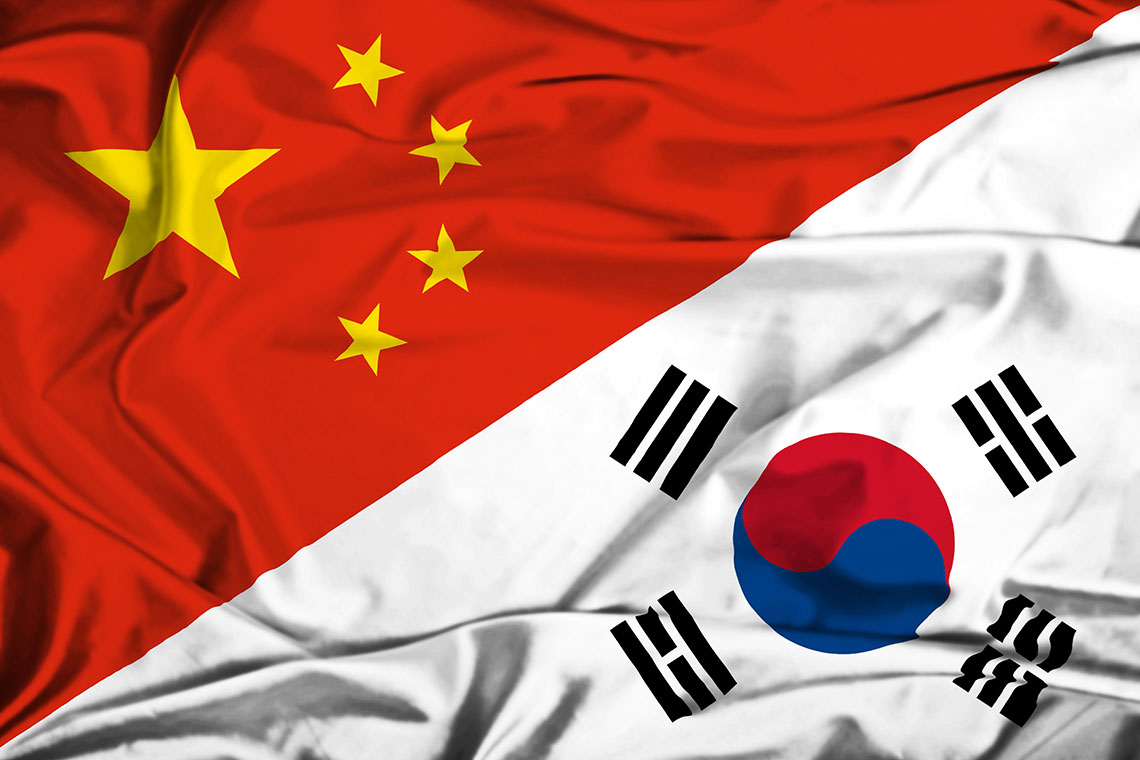Internet news in censors’ crosshairs, again
A roundup of today’s top China news. Get this free daily digest delivered to your inbox by signing up at supchina.com/subscribe.

Gags on internet news tighten
The Cyberspace Administration of China (CAC), a government body responsible for all aspects of internet regulation, has released a new set of rules titled “regulations for the management of internet news services” (in Chinese), which come into effect June 1. They apply to any posting of political, military, diplomatic, or economic news on any digital platform, including social media. Reuters notes that the rules stipulate that “all such platforms must have editorial staff who are approved by the national or local government internet and information offices, while their workers must get training and reporting credentials from the central government.”
Why these new rules for an already highly-censored internet? Caixin quotes Qiao Mu 乔木, media critic and a former professor at the Beijing Foreign Studies University: “This is a step to replicate the management imposed on traditional news organizations such as newspapers.” The rules are in some ways nothing new, and merely give the authorities another tool to add to those they’ve been using for years (PDF).
In addition to the new rules, CAC published a document titled “procedures for enforcing administrative laws on content management” (in Chinese), which details how content management violations should be investigated and handled.
How to be a journalist in China
Former Phoenix TV news editor, war correspondent, and presidential interviewer Rose Lüqiu Luwei 闾丘露薇 has written a “personal reflection” on “how to be a journalist in China.” She describes the frustrations and obstacles that Chinese journalists face, and how they can sometimes “manage to affect policy makers’ decision-making” despite an environment that is hostile to news media.
—Jeremy Goldkorn, Editor in Chief
This issue of the The China Project newsletter was produced by Sky Canaves, Lucas Niewenhuis, Jia Guo, and Jiayun Feng. More China stories worth your time are curated below, with the most important ones at the top of each section.
BUSINESS AND TECHNOLOGY:
Silicon Valley vs. China: Arms race for AI talent
The Financial Times reports (paywall) that Tencent, the company behind the WeChat app, will open a lab in Seattle to develop artificial intelligence (AI) technology, led by Dong Yu (俞栋), who previously worked at Microsoft China as principal researcher. Tencent’s new American lab will focus on speech recognition. Last April, Tencent established an AI lab in Shenzhen, employing “50 computer scientists and 200 engineers.” The company plans to apply its AI technology to social media, online games, and cloud services as well as to content such as online news platforms.
Search giant Baidu, which in 2014 was the first Chinese tech firm to open a U.S.-based AI lab, last week announced plans to open a second one, according to Caixin. Both labs are located in Silicon Valley. In late March, the company lost the head of its data and artificial intelligence research division, Andrew Ng, who helped start Google’s deep learning initiative. But Baidu’s founding CEO Robin Li 李彦宏 has been stepping up efforts to woo foreign talent. In March, he urged official delegates at the Two Sessions to make China more welcoming to international staff, and said that Trump’s restrictive immigration policies offered “a great opportunity” for China to attract talent from Silicon Valley. Last week, he told CNN that “this is a good time for China to stand up and say, ‘Hey, come to us. We like you. We welcome immigrants.’”
In March this year, Didi Chuxing, the rideshare behemoth that ate Uber alive in China, announced the opening of its AI lab in Silicon Valley. TechCrunch reported that “the new center is part of a move to suck up talent beyond Didi’s current catchment pool in China, particularly in the areas of AI and self-driving vehicles, but it doesn’t signal an expansion of its service into North America.”
- HNA Group reported to continue buying spree with acquisition of ‘major’ cruise line / Jing Daily
- Tencent’s market value passes $300 billion after market rally / Caixin
- Venture capital quandary: Too much money chasing too few ideas / WSJ (paywall)
- In China, a pig farm just got tens of millions of bucks in VC funding / Tech in Asia
- China’s $11 trillion economy and markets are in a tug of war / Bloomberg
- China’s economic miracle has an ugly underbelly / Washington Post
- China may put South Asia on road to debt trap / Economic Times
- China’s sovereign wealth fund exec blasts China’s forays into Hollywood / The Wrap
POLITICS AND CURRENT AFFAIRS:
Former Shanghai mayor to advise on Xiongan New Area
The South China Morning Post reports that Xu Kuangdi 徐匡迪, the “septuagenarian former Shanghai mayor…who played a key role in transforming that city’s riverside Pudong backwater into China’s financial hub,” has become Xi Jinping’s “key advisor” on the Xiongan New Area project. Xiongan is a brand new city planned for an area in Hebei Province about 100 km (62 miles) southwest of Beijing. Xu spent much of his life researching, teaching, and working in steel production.
- Staff ‘suspended’ at Voice of America after interview with fugitive tycoon Guo Wengui / SCMP
“Broadcaster says decision based on journalistic principles – not pressure from the U.S. or China.” - Guo Wengui is a sensitive political event / China Digital Times
Reportedly censorship instruction prohibiting Chinese news organizations from reporting on Guo Wengui. - Is China the world’s new colonial power? / NYT (paywall)
Reporting from the southwest African nation of Namibia, Brook Larmer writes that “the rising superpower has built up enormous holdings in poor, resource-rich African countries — but its business partners there aren’t always thrilled.” - Opinion: Belt and road: A symphony in need of a strong conductor / Caixin
Jin Keyu 金刻羽 writes that it is unlikely that China’s One Belt, One Road plan was intended “to fill in the gap of a superpower as it recedes from the world stage.” Rather, “it is just that somebody has to do the job.” - ‘Disgusting’ and ‘extraordinary’ scenes as Chinese delegation shouts down welcome ceremony / Sydney Morning Herald
- National credit system puts bike-sharing bandits in crosshairs / Sixth Tone
- Slowly, China prepares to raise retirement age / Caixin
- China demands immediate halt to THAAD missile system now ‘operational’ in South Korea / SCMP
- Falsely accused: Chinese-American physicist recounts being branded a spy / Asia Society
SOCIETY AND CULTURE:
Street photo scam in Sanlitun
Scammers in Sanlitun, a popular shopping and nightlife area in Beijing, are posing as talent scouts, targeting young women who dream of becoming models, the Beijing News reports (in Chinese). The con artists usually begin by complimenting girls on their looks or style, and ask to take street snaps of them. After getting their phone numbers, the fake talent agencies then constantly call the girls, persuading them to pay for photo shoots, cosmetics, and magazine exposure, with the promise of part-time modeling jobs.
The journalists who wrote the exposé infiltrated one of the fake talent agencies and asked how they select their targets. One staff member answered, “Good-looking and rich girls. You just observe if they are carrying luxury bags or wearing branded clothes.” Another staff member added, “It doesn’t matter if the girl looks pretty or not, as long as she looks rich.”
More than 16 people have reported similar cases to the Beijing police, who have started investigating the scam.
- My Beijing: The sacred city / NYT (paywall)
Beijing resident and writer Ian Johnson on why “Beijing’s culture is not dead,” but “being reborn in odd corners of the city and in unexpected ways.” - China, the emerging medical tourism hot spot / China Daily
On traditional Chinese medical clinics in Hainan, Xinjiang, and Beijing attracting foreign patients. - China sees tourism boom during May Day holiday / Xinhua
- Great Wall of China too crowded? Visit its replica…also in China / SCMP
- Why you shouldn’t look down your nose at Chinese tour groups / Hong Kong Free Press
- Kung fu experts next in line for MMA fighter who whipped tai chi master in just 10 seconds / SCMP





